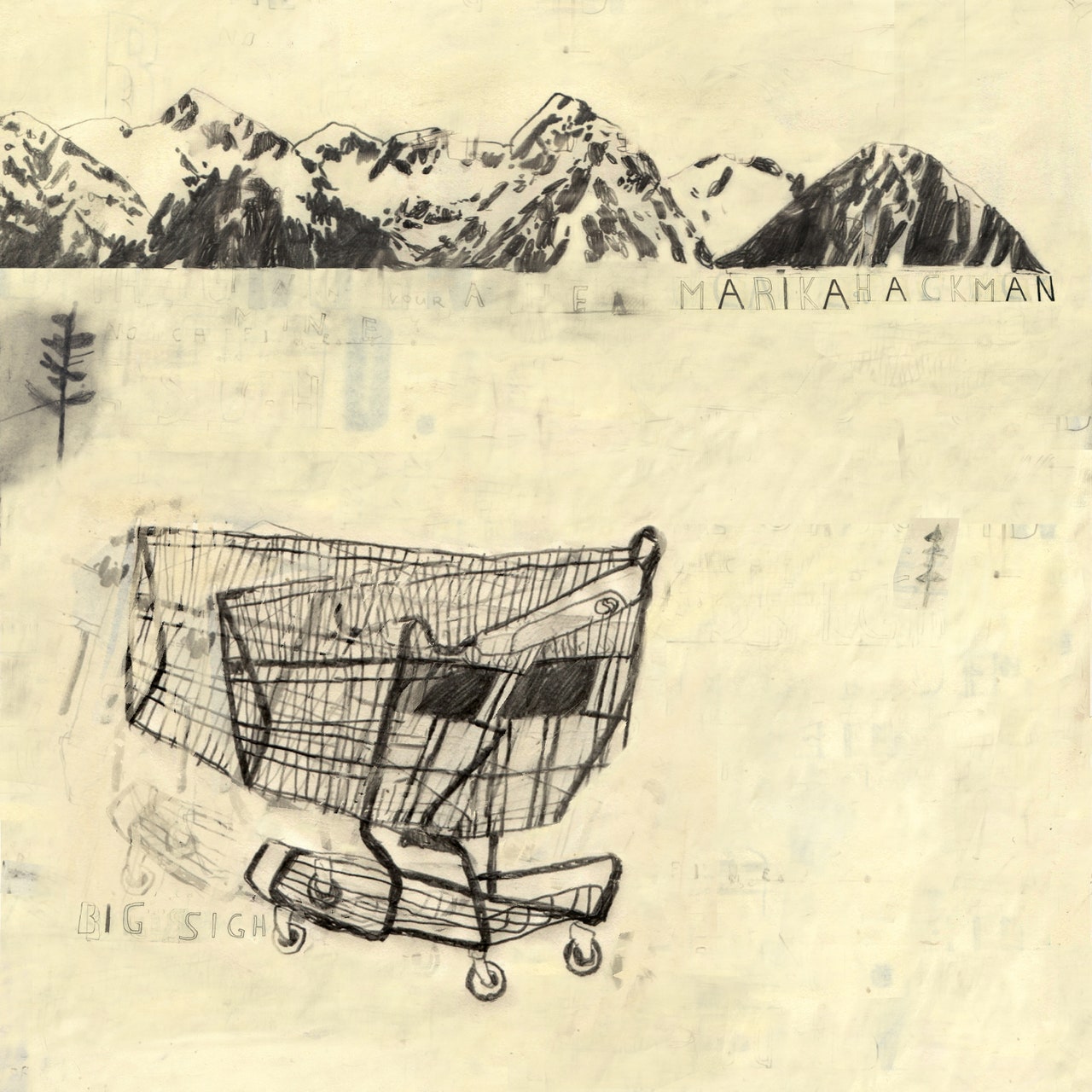Across her last two albums, Marika Hackman has been wresting herself from the dusky, somber folk songs of her 2015 debut, We Slept at Last. On 2017’s I’m Not Your Man, the British singer-songwriter tweaked her palette with nods to ’90s Britpop and a mischievous punk spirit. Hackman’s third full-length, Any Human Friend, was moodier, but still felt like a pointed departure, swapping softly strummed dirges for an electro-pop-rock hybrid along the lines of London’s Field Music and Hot Chip. But then, it all stopped. In 2020, Hackman developed an acute case of writer’s block; it was so paralyzing that she feared she’d never press another track to vinyl. Her new album, Big Sigh, is the result of slowly piecing songs together over the last few years and finding the confidence to helm production for the first time.
Likening the process to cracking into a block of ice, Hackman chipped away at writing Big Sigh with weary determination. Sometimes, the songs cleaved off easily in glistening hunks—but occasionally, you can hear the labor that went into all that chiseling. Acoustic closer “The Yellow Mile” is effortless and demure, its finespun fingerpicking reminiscent of Hackman’s earliest work. Little more than a mingling of guitar and her delicate register, “The Yellow Mile” is an uncluttered canvas where Hackman’s incisive lyrics glint like blades. Chronicling an unhealthy relationship, she likens her stasis within it to that of a wounded bug. “I left my body in your care,” she sings, teasing a happy ending. The hairpin turn that follows is jarring: “You plucked my wings off and I went slack/I was a beetle on my back.” Hackman has always been adept at spiking sweet melodies with venomous couplets, and “The Yellow Mile” is a lean and prickly fusion of those tendencies.
Slow-burner “Vitamins” is from the same playbook, pairing hushed dynamics with gritty imagery. Here, Hackman meddles with the formula, coating her voice in metallic layers and sending the song out on a warped synth arpeggio. “Mum says I’m a waste of skin/A sack of shit and oxygen,” she sings. An electronic chirp cuts through her placid vocal, sounding almost like a dying heart monitor. There is something extremely vulnerable about Hackman’s plainspoken admissions of feeling worthless, a sentiment that’s somehow sharpened by her detached, steely voice.

